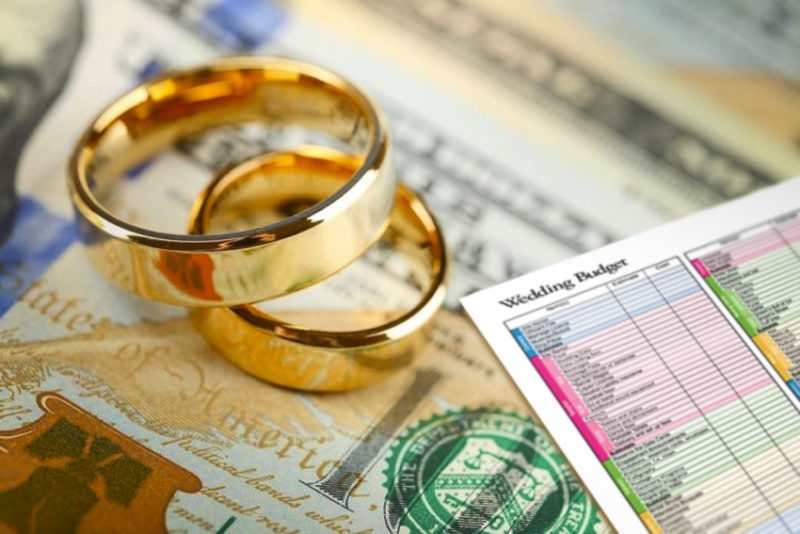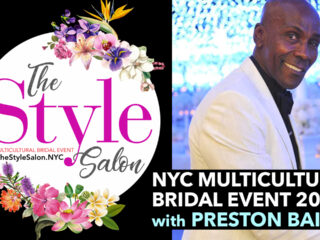Your wedding day is one of the most important days of your life, and probably, for most people, the most expensive event they will ever throw. So what happens when you discover that your wedding vendors may be stealing from you or strong-arming you into higher payments and hidden charges?
In the floral and fondant world of weddings, it’s often a shock to couples to find out that one or more of their vendors are not working in the couple’s best interest. It’s particularly heinous when couples suspect that their vendors are stealing from the wedding budget in a scam of kickbacks from referrals. This can happen in many forms, sometimes legitimately as when a planner works free for the bride, but is paid by the vendors and all parties are aware of the arrangement or more questionably when a vendor demands a referral fee unbeknownst to the bride. Unfortunately, due to the bespoke nature of the wedding industry, there are no hard and fast rules to pricing or procedure perhaps except for one: full disclosure for all parties.
The Caterers – Venue Relationship
Sharon Anderson of Texas-based City View Catering has been in the bridal industry for over 25 years and she says, “I’ve seen a lot of things in my time in this industry both as a caterer and as a venue.” Sharon used to own the now-closed Villa Rinata. She explains, “When it comes to a Preferred Vendor list, especially at a venue, you have to ask what that exactly means. Ideally, it’s supposed to be a list of vendors whose values, style and work ethic matches that of the venue.”
“However,” Sharon continues, “I find that some venues will only put a caterer on the preferred list only if the caterer gives the venue a few dollars of the per head cost. All that happens is that the caterer is forced to raise prices so that they can pay the venue, and so the caterer will have different prices for different venues for the same menu. That cost ultimately gets passed onto the bride, which is unfair since she is already paying the venue a fee. When I see this happen, I respectfully decline the job as I don’t want to ruin my reputation.”
The Planner’s Loyalties
When it comes to a well executed wedding, an event planner can help you pull off the most complicated of events from ensuring vendors show up on time, to addressing those last-minute crises that often happen on the day of the event. A reputable planner should have only the bride’s best interest at heart and should be working with full transparency as the bride’s agent to give her exactly the wedding she and her husband want. And though a planner may have a strong working relationship with certain vendors that she refers based on the bride’s style and budget, some unethical planners regularly receive a kickback from vendors for using them in the wedding.
When New York couple Annie and Vivek (not their real names) were in the process of planning their wedding two years ago, they used a wedding planner to help plan and arrange their special day. Since both were doctors, their schedule didn’t allow them the time needed to research vendors and so they took the recommendations of their planner.
“We were both really busy with our residencies,” says Annie, “and so when our planner recommended vendors, we looked at their past work, saw the budget and agreed to it. Sure the wedding was beautiful, but when a friend used one of the same vendors a year later and told us her quote, we realized that we had been overcharged by at least a thousand dollars for the exact same type of package. The only difference was our friend contacted them directly, and we went through a planner. Even though it was too late to do anything, it left us surprised. We were already paying [the planner] thousands of dollars, but to find out she may have taken more? That hurt.”
Preeti Vasudeva of Preeti Exclusive Events, a planner with 15 years of experience says, “Yes, I have been offered a commission by certain vendors [for employing their services], but I always refuse. My reasoning is that I am working on behalf of the couple and if something goes wrong, I can’t turn around and ethically fight for the couple if I have been paid by a vendor. I have to be on the bride’s side.”
However, there are times when a planner will take a fee from vendors and it is perfectly ethical. Fathema Ruma of Ruban Events, a decorating firm based in New York City says, “I work with many planners and usually they have an average vendor price and that’s what they quote the bride. Sometimes, however, the planners won’t charge the bride, but instead are paid by the vendor in the form of a mark-up. In this case, the brides are aware of the charge and are ok with it because it has been stated in the beginning. And yes, I have been approached by vendors to provide commissions and I have refused because that’s not how I want to work. I am already being paid by the bride, and I want to make sure she gets what’s best for her, not what’s best for me.”
A Matter of Timelines
A wedding usually is a costly affair for the couple, and a payment timeline is often a necessity to make it easier to fund the event. Often times, vendors will break up the payment into installments with each due upon a mutually agreeable timeline between the vendor and the couple. However, when Fatima S. from Canada got married a few years ago, she claims that the venue changed her payment plan and demanded the final payment earlier than expected, threatening to cancel the wedding all together. She says, “They wouldn’t accept the payment plan originally agreed upon and started harassing me right before the event. I ended up taking out a line of credit, which I have never done in my life, because they suddenly wanted thousands of dollars right away when I thought I still had time to pay. It wasn’t a big deal for me, because I did have money in the US, which my brother was bringing with him, so I could pay off the line within a week of my wedding, but what about the people who might not have readily available sources. Interestingly enough, the guy chose to harass me on days I was alone, never when my fiancé or my brother-in-law were around. He was extremely rude and intimidating and screamed and shouted.”
Event planner Chandai Raghunauth of Chandai Events says, “I’m a big believer that if it isn’t in writing, it doesn’t exist. I have bumped into times when the caterer, for example, said that the tips were included verbally, but at the end of the night, the chefs and servers came asking for tips. I said speak to owner, knowing exactly what the contract said regarding tips. I usually make sure the couple know if tips are due at the end of the night and to have them prepared beforehand so that there are no surprises.”
So how do you avoid being ripped off by your vendors, or intimidated into advanced payments or up charges? Based on advice from industry professionals, we have complied these seven suggestions.
Avoid Getting Ripped Off with Seven Suggestions
- Ask for a Transparency Clause in the contract which states that the vendor in question is not receiving or giving kickbacks for referrals.
- Check the vendor’s last five or so weddings, but especially the planner’s (as they act as a gateway to other vendors). If the same vendors are used over and over for each, there is a chance that either the planner is giving you a cookie-cutter wedding or they are receiving a cut. Both are wrong.
- Watch for red flags. If the vendor is not taking your style, budget or vendor choices in consideration, try to ask why? Watch out for the word “Exclusive Relationship” with a particular vendor.
- Pay attention to your vendor quotes. Confirm your quote with the vendors you’ve chosen and ask them out right if they are giving or receiving a commission for your wedding. If they lie to you and you can prove it, you can sue them.
- Do your diligence by inquiring about each vendor’s reputation and their ethics before signing the contracts. Check professional associations, online reviews and the BBB. If you feel uncomfortable for any reason or are feeling forced into doing something you feel uneasy about, don’t sign the contract. The last thing you want is to feel bad about your own wedding. Better to find another, more reputable vendor.
- Pay the vendors yourself. Don’t give a lump sum to your planner. In today’s world of electronic payments, this should be a no brainer.
- Have everything including details of the wedding, payment plans, tips and other items written in your contract. If changes are made via email or a phone call, have that as an addendum to the contract and have both parties sign off so that there are no grey areas.











